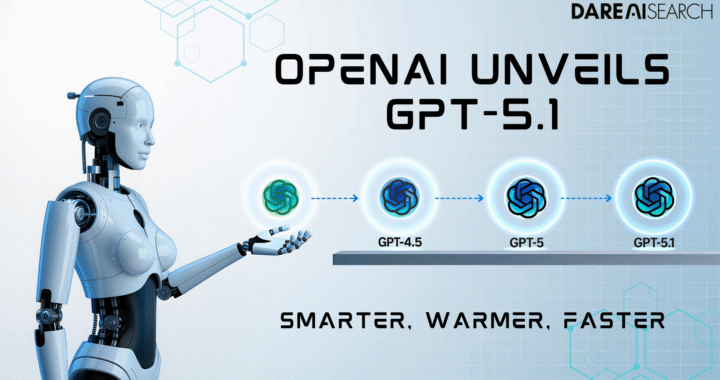A Guide to Information Security Certifications

Well, certifications definitely tend to happen today and are, in general, a significant prerequisite for the recruiting of trained security personnel, a standard that most businesses adopt. The key point and the difficulty for employers are to recognize what a particular credential entails. If a certification along with master’s degree in key areas of knowledge also tests the candidate’s practical knowledge and his / her abilities to function and effectively perform tasks in information security, then the information security certification value increases considerably as companies get some kind of assurance that they are recruiting the correct person and have a confirmation for the performance skill of that person as well as understanding on related areas. Even the importance of the certifications depends on what the applicant wants and is seeking? Certification that does not comprise a requirement for experience will surely not be worth pursuing. For example, a certification in Certified Ethical Hacker (CEH) or Certified Information System Security Professional (CISSP) will be more appropriate for an information security professional striving to conduct penetration tests or vulnerability assessments than getting certified as a Certified Information Security Manager (CISM) or a Certified Information Systems Auditor (CISA) which is increasingly aimed at the side of the management and audit. Certification certainly plays a major role in an individual’s profile, particularly when have strong industry experience.
Why we need to get a Security Certification
- To grow your insight in security practices and concepts and get a more extensive point of view in information security.
- To expand your network by connecting a professional enterprise and being able to connect up with similar people.
- To demonstrate an interest in the discipline of security and that you are so committed to its practice
- This provides you a chance to specialize and focus in a specific zone within information security that helps in further clarifying your profession.
- It certainly enhances your current experience and is favored by recruiting managers and organizations, with a high possibility of you getting a positive answer for potential interviews.
- Global Recognition. Although credentials may not be compulsory for specialists in the current scenario, an increasing number of businesses are requiring or suggesting that employees become certified. The selection of a certification program based on globally understood technical practices is vital to help ensure success in the global marketplace.
- It gets you a decent condition to negotiate benefits and salary with potential employers
CompTIA Network+
This foundational credential, while not specifically based on information security, sets the standard for IT professionals by ensuring that they understand the networking’s ins and outs. Security of information requires a strong understanding of how networks function and their potential vulnerabilities — and this certification shows you understand the best way to walk before running.
This is a strong, vendor-neutral IT credential, which can be suitable for a number of networking positions. It is important to note that this is not strictly a certification of information security, therefore the source material might be somewhat broad.
CCNA – Cisco Certified Network Administrator Routing and Switching
The CCNA credential for routing and switching is another basic certification option for those who want to branch into the security of information. This Cisco-centric certification is very helpful to demonstrate the advanced information of network basics, technologies of LAN and WAN, and other important network infrastructure for candidates. This is not a purely security-oriented certification, but it is a perfect springboard for potential certificates for future credentials. This credential can be obtained either by having to pass a single thorough examination or by finishing two different tests (its first test relates to the Cisco Certified Entry Networking Technician (CCENT ®) entry-level credential.)
CompTIA Security+®
This certification from CompTIA is a typical beginning stage for networking experts looking to support their data security resumes. This test covers key data security themes like basic vulnerabilities and threats, systems architecture, technologies used, access management, risk management, and cryptography.
Security+ certification is sought for many governments IT and government contracting jobs for those seeking a credential to potentially open doors for them. To complete it takes a fairly low investment, so it’s an ideal choice for any IT specialist looking to branch out into a market that’s more focused on defense.
Cisco Certified Network Associate Security® — (CCNA Security)
The next logical step on the Cisco certification path for the security professionals, this CCNA component is a popular choice for those established on an information security track. Seven topics are focused on this credential: secure access, security concepts, Cisco firewall technologies, VPNs, secure routing and switching, IPS, and security content and endpoints.
Certified Ethical Hacker (CEH)
The CEH certification remains a very well-known certification for information security professionals looking to concentrate their professions on penetration testing and other aggressive security work. This credential focuses on the hackers’ architectures and strategies, and the measures normally used to counter them. This credential can be a strong entry-level choice for prospective penetration testers and is easier to acquire for experienced professionals in information security.
Certified Information Systems Auditor – CISA
The certification of CISA is a popular and respected decision for any IT security proficient keen on concentrating on audit work. The certification is earned by finishing a test comprising 5 “domains” that incorporate subjects like IT governance, information systems auditing processes, development and implementation of information systems acquisition, and the security of information assets.
Certified Information Systems Security Professional — CISSP
Intended for data security experts focusing on upper-level jobs—think executive-level positions or Chief Information Security Officer. The CISSP is viewed as one of the top cybersecurity credentials. The individuals who have this capability have exhibited their mastery of eight key “spaces” including Asset Security, Security and Risk Management, Communication and Network Security, Security Architecture and Engineering, Security Assessment and Testing, Identity and Access Management, Software Development Security, and Security Operations.
Offensive Security Certified Professional — OSCP
This rigorous security-focused offensive certification is a good way of showing your mastery of this area. The credential requires candidates to study a penetration testing course (complete with a practice time of virtual lab) and a hands-on test for twenty-four-hour that mimics an aggressive safety strategy in the real world. Candidates collect virtual network information, recognize potential weaknesses, and execute exploits or attacks, culminating in a comprehensive finding report.

 Understanding the Difference Between Prime and Standby Generators
Understanding the Difference Between Prime and Standby Generators  Australia Virtual Number: A Smarter Way to Connect with Customers
Australia Virtual Number: A Smarter Way to Connect with Customers  The Power of AI Call Tracking Software in Modern Business
The Power of AI Call Tracking Software in Modern Business  Pay Per Call Routing: Driving Smarter Conversions for Businesses
Pay Per Call Routing: Driving Smarter Conversions for Businesses  Revolutionizing Small Business Customer Support in India: A Guide to Top Customer Support Software
Revolutionizing Small Business Customer Support in India: A Guide to Top Customer Support Software  Maximizing User Experience: Innovative Mobile App Design Strategies
Maximizing User Experience: Innovative Mobile App Design Strategies  Mastering Mandarin in the North: Your Trusted Tuition Centre in Woodlands
Mastering Mandarin in the North: Your Trusted Tuition Centre in Woodlands  Winter Edit: Chic Suits for Women and How to Layer Them
Winter Edit: Chic Suits for Women and How to Layer Them  How To Find The Best Men’s Running Shoes For Every Activity
How To Find The Best Men’s Running Shoes For Every Activity  From SEO to GEO: Why GPT-5.1 Makes Traditional Search Optimization Obsolete
From SEO to GEO: Why GPT-5.1 Makes Traditional Search Optimization Obsolete